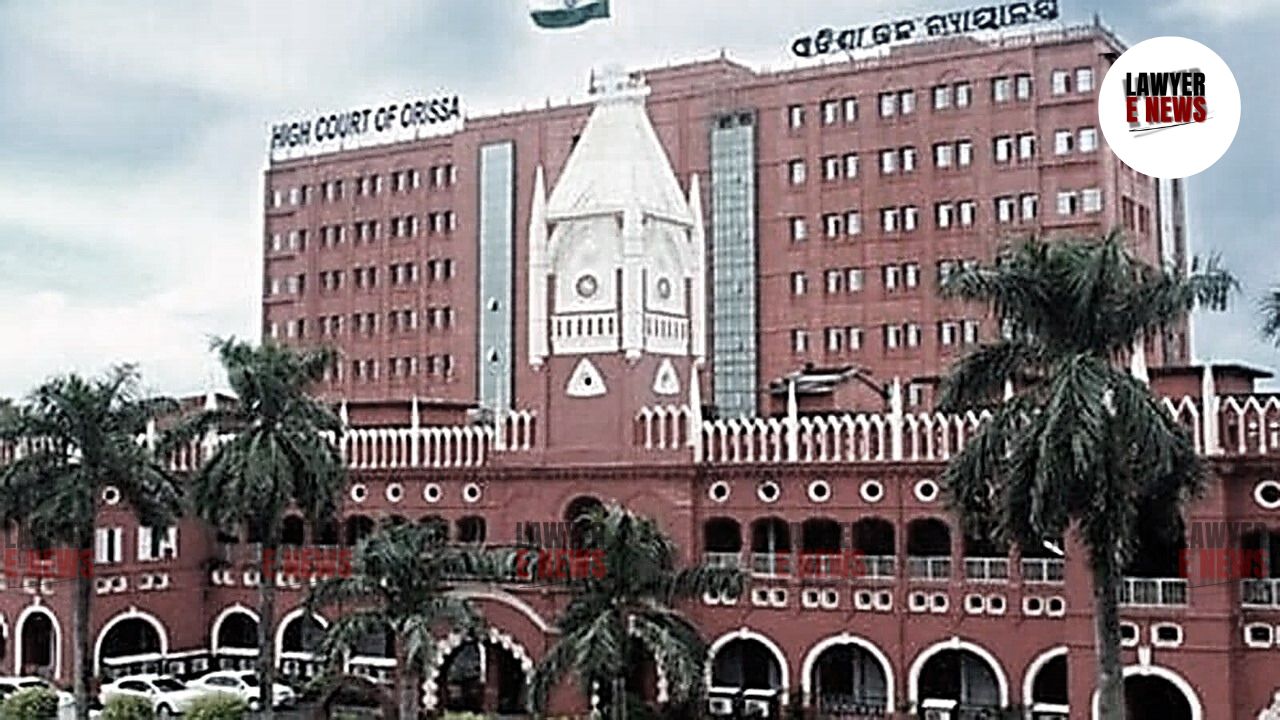-
by Admin
18 February 2026 2:25 PM



“Husband Must Prove Wife Lived Separately Without Sufficient Cause—Restitution Decree Alone Is Not Conclusive”, - Orissa High Court holding that non-compliance with a decree of restitution of conjugal rights does not automatically disqualify a wife from claiming maintenance under Section 125 CrPC. Justice G. Satapathy ruled that to deny maintenance, the husband must further prove that the wife withdrew from cohabitation without sufficient cause, and not merely that she disobeyed a decree.
“The decree of restitution of conjugal rights obtained by the husband coupled with its non-compliance by the wife would not be the sole determinative factor to disentitle her from getting maintenance.”
The Court remanded the matter back to the Family Court, Cuttack, for a fresh adjudication, setting aside the earlier order that had denied maintenance to the wife.
“Desertion Must Be Proven Beyond Mere Disobedience of a Court Order”
The Family Court had earlier refused maintenance to the petitioner-wife on the ground that she willfully failed to return to her matrimonial home despite a restitution decree. The High Court rejected this simplistic approach and relied on the Supreme Court's ruling in Rina Kumari @ Rina Devi @ Reena v. Dinesh Kumar Mahato:
“The mere presence of a decree for restitution of conjugal rights was held insufficient to disentitle a wife from claiming maintenance if the conduct of the husband is such that she is unable to obey such a decree.”
The High Court observed that the onus lies on the husband to prove not only that the wife disobeyed the decree, but also that her separation was without sufficient cause.
“What constitutes sufficient cause is dependent on the facts and circumstances of each case… the wife can still establish that she has valid or sufficient reason to refuse to live with her husband despite a decree.”
“Contradiction in Husband’s Pleas Weakens His Case”
The Court also found it contradictory that the husband relied on the restitution decree to oppose maintenance, while simultaneously pursuing a divorce petition under Section 13 of the Hindu Marriage Act against the same wife. Justice Satapathy remarked:
“The plea of the husband in CP No. 222 of 2011 for divorce is contrary to his stand in the restitution petition… It reflects internal inconsistency in his position.”
This dual approach weakened the husband’s credibility and suggested that he too was not genuinely interested in restoring the marriage.
“Maintenance Must Match the Standard of Living of the Husband”
The Court further found fault with the mechanical fixation of ₹2000 (later ₹5000) per month as maintenance for the daughter without proper reasoning. The husband’s affidavit showed a net monthly income of ₹1,59,019, but he claimed inflated expenses including ₹50,000 on rent and miscellaneous costs without supporting documents.
“No reason has been assigned by the trial Court while quantifying maintenance… the wife and children are entitled to maintenance commensurate with the standard of living of the husband.”
The High Court noted the trial court's failure to properly assess the husband's financial capacity and the needs of the child.
The High Court allowed the revision petition and remanded the matter for fresh disposal, directing the trial court to re-examine both the wife’s entitlement and the quantum of maintenance. Meanwhile, the husband was ordered to pay interim maintenance of ₹5000 per month to each petitioner from 1 April 2025, which would be adjusted against the final amount determined.
“Since the proceeding is pending since 2011, the learned trial Court is requested to dispose of the case within three months.”
This ruling affirms that maintenance rights under Section 125 CrPC are not to be defeated by technicalities, and that a wife’s refusal to rejoin her husband must be examined in the context of surrounding circumstances and marital conduct.
Date of Judgment: 7 May 2025
